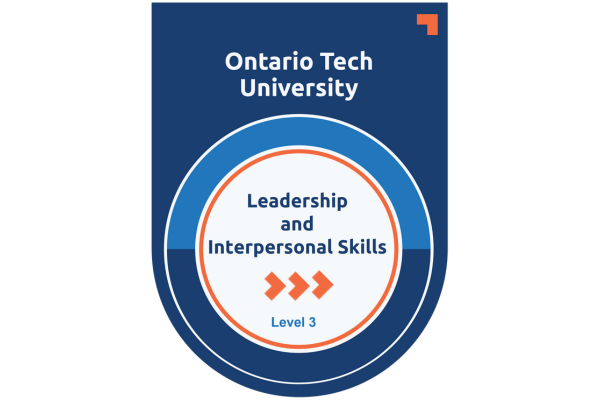
Resolving conflict without escalation: Conflict resolution skills for customer-facing roles
By: Sheldon Kawarsky (Continuous Learning Instructor)
Do you have customer service representatives or employees who interact with customers daily? If so, then ensuring they are equipped to proactively address and resolve conflict can be a crucial factor in shaping the overall customer experience of your company. Outside of having an open line of communication between your staff and customers, it’s essential that everyone involved has the proper conflict resolution skills to de-escalate potentially explosive situations quickly and efficiently.
This blog post explores how your employees can develop conflict-resolution skills in the workplace.
Common causes of conflict in customer-facing roles
The role of a customer service representative is to provide solutions to issues that customers may have, but sometimes, these issues can be far from easy to resolve. Some of the most common conflicts in customer-facing roles include:
-
Miscommunications or misinterpretations of information
-
Dissatisfaction with products or services
-
Billing and payment disputes
-
Policy and procedure disagreements
-
Service delays or failures
-
Complaint handling
-
Unrealistic expectations
-
Cultural and language differences
-
Competing priorities
-
Disruptive or aggressive customer behaviour
-
Product returns and refunds
-
Lack of empathy
-
Resource constraints
The impact of unresolved conflict on customer-facing roles
Unresolved conflict can have an immense and long-lasting impact on a business. While some conflict is inevitable, addressing it swiftly and efficiently is essential. Below are some ways that unresolved conflict can affect businesses.
-
Customer dissatisfaction and churn: Customers may become frustrated with the lack of resolution or progress towards resolving the issue, leading them to look elsewhere for a better experience.
-
Reputational damage: Unresolved conflict between customers and employees can negatively affect a company’s reputation and result in lost business opportunities as potential customers are turned away due to negative reviews.
-
Legal and compliance issues: If employees engage in inappropriate behaviour or fail to follow company policies when interacting with customers, the company could face legal action from dissatisfied customers or regulatory bodies.
-
Resource drain: Managing conflict in the workplace is important because unresolved conflict often requires additional time and effort from managers and other staff members who must step in to resolve the issue or provide support for those involved.
-
Reduced employee morale: Employees may become less engaged in their work due to feeling disrespected or unappreciated by their colleagues or superiors, which leads to increased absenteeism and lower job satisfaction.
-
Escalation: If left unchecked, unresolved conflict between customers and employees can escalate into physical altercations or verbal abuse, which could have serious consequences for all parties involved.
-
Missed improvement opportunities: Missed chances at increasing efficiency levels, improving processes, or even creating new products for employees and customers alike could negatively affect a business.
-
Loss of competitive advantage: When employees are unable to resolve their differences, it can lead to poor customer service, and customers may choose to take their business elsewhere.
-
Long-term damage: If customers become dissatisfied with the service they receive, they may choose not to return in the future, which could decrease sales and revenue for the company over time.
-
Increased customer service costs: Unresolved conflict in customer-facing roles can lead to increased customer service costs for a company due to the increased labour hours needed to resolve issues related to the conflict.
Conflict resolution skills for customer-facing roles
Companies that invest in conflict resolution training and have clear policies for handling conflicts will have a significant advantage in mitigating the negative impact of unresolved conflict. Some of the conflict management skills that could benefit your employees include:
-
Active listening: Essential for conflict resolution, active listening means focusing on what the customer says without interruption or judgment.
-
Conflict documentation: Keeping detailed records allows for more manageable review if needed later on and ensures that no steps have been missed during the conflict resolution process.
-
Empathy: Empathy involves understanding how the customer feels about their situation and relating to those feelings.
-
Maintaining calmness: Remaining calm ensures that both parties can discuss their issues without getting too emotional or agitated.
-
Cultural sensitivity: When dealing with customers from different backgrounds, it is important to be aware of the cultural norms and values that may influence their behaviour and communication style.
-
Positive language: Positive language encourages collaboration between all parties involved and helps foster a sense of cooperation rather than confrontation or hostility.
-
Problem-solving: A key conflict management skill for leaders, having strong problem-solving skills means identifying potential solutions that could work for both parties involved in the conflict.
-
Conflict de-escalation: Conflict de-escalation is all about recognizing signs of escalating tension and taking steps to de-escalate the situation before it gets out of hand.
-
Adaptability: Adaptability encourages flexibility, which helps ensure that no two resolutions are exactly alike but instead tailored specifically towards each individual dispute.
-
Conflict mediation: Conflict mediation includes facilitating discussions between two conflicting parties while also helping them come up with mutually acceptable solutions.
-
Time management: Keeping track of conversations so they don’t become too lengthy or drawn out and allowing everyone involved enough time to discuss their points without feeling rushed is a vital conflict management skill.
-
Assertiveness: Being assertive when dealing with conflicts helps ensure that all parties involved are heard and respected throughout the process of resolving disputes or disagreements amicably.
-
Decision-making: It is important to remain calm and confident when making decisions, as this will help you focus on finding a solution that works for everyone involved.
-
Resilience: Resilient individuals can remain composed under pressure and think clearly even when faced with difficult circumstances.
-
Team collaboration: Team collaboration encourages open communication among team members, which helps ensure that everyone understands what needs to be done when resolving conflict between customers and employees.
Exploring the benefits of Continuous Learning
Did you know Continuous Learning offers the perfect course for handling conflicts? The Conflict Management and Negotiations course is designed for leaders, providing comprehensive insights into various types of conflicts and effective strategies to address them. You'll also learn how to minimize conflicts among colleagues and develop confident negotiation skills.
Kawarsky, Sheldon. “Resolving Conflict Without Escalation: Conflict Resolution Skills For Customer-Facing Roles”, The Soft Skills Group, 20 Nov. 2023,









